When we talk about hygiene, one thing we greatly miss out on is the topic of feminine hygiene. This topic has been a taboo for many years, with a 2019 UNICEF report stating that 5.12 lakhs adolescent girls dropped out of school due to lack of awareness about menstruation and inaccessibility to sanitary products. However, the times are changing, and thanks to some disruptive products in the market, we are now embracing feminine hygiene as a crucial part of our overall health. Check out this list of five products that one must know about, for a hassle-free period:
1. Sanitary Napkins
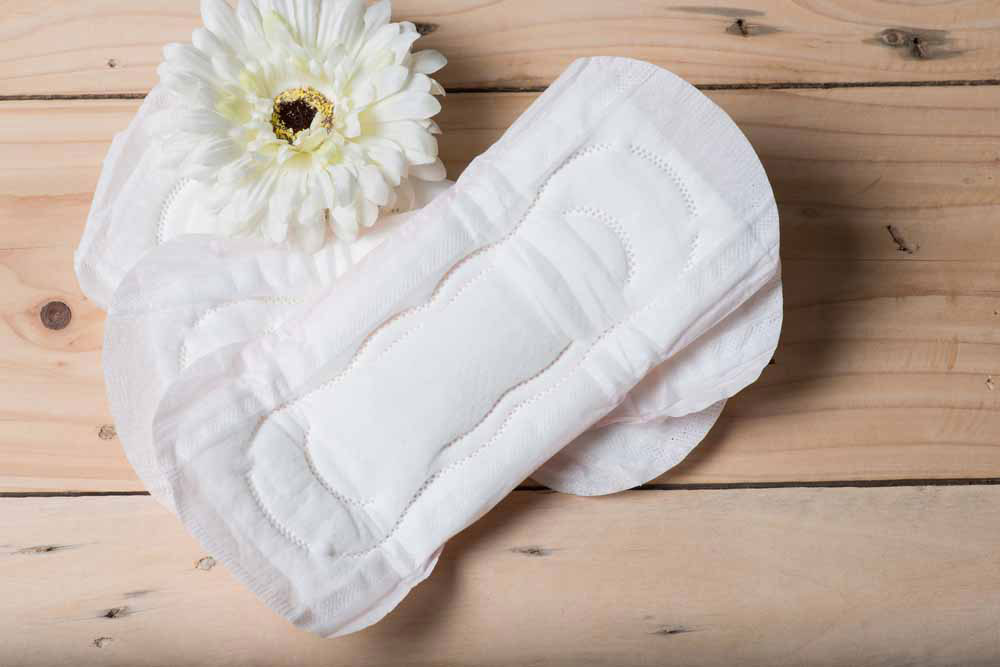
Sanitary napkins contain a high amount of plastic, and take over 200 years to decompose. As minimising pollution/environmental degradation is the need of the hour, several homegrown brands have come up with options made from locally sourced, organic raw material.
Take Noraa for instance. The brand entered the market in 2019 as the founder, Hemender Singh Hoon felt the need to increase awareness around menstrual hygiene. Together with his business partner, Ayush Chandel, Noraa was launched with an all women manufacturing unit, and they attest to be the one of the very few companies manufacturing sanitary napkins in India, as opposed to many market players that import their products. The sanitary napkins are made using organic cotton and cornstarch, which degrade in about six to 24 months. The napkins also feature an organic adhesive back layer, as opposed to plastic that is used in most products.
2. Tampons
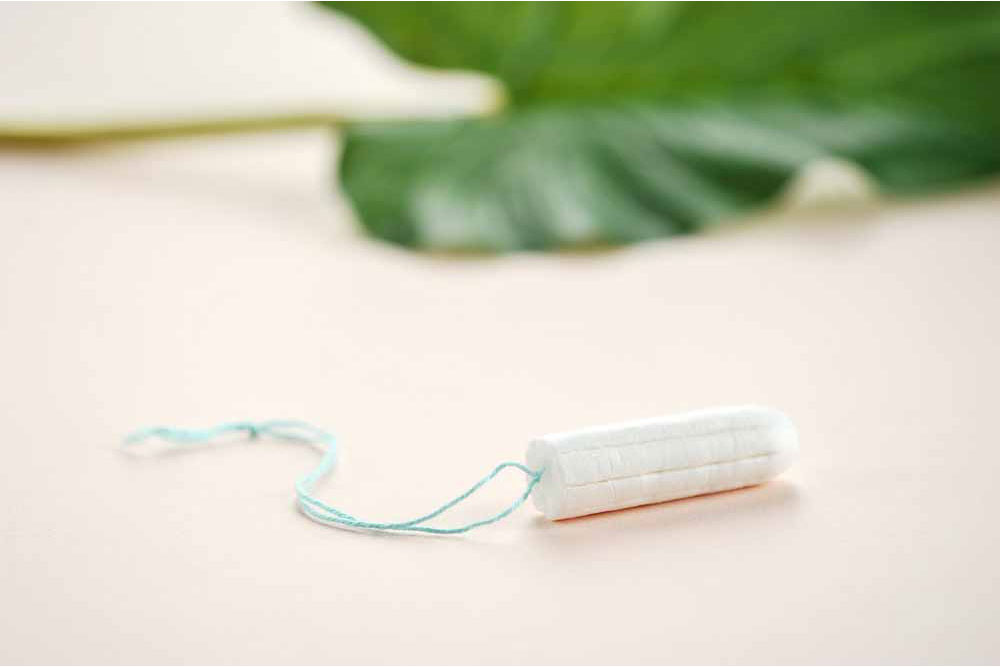
A common misconception surrounding tampons is that they are uncomfortable and do not help if the flow is heavy. There is also a belief that tampons may break your hymen, and inserting a tube-like object is extremely painful. However, experts suggest that this is a myth. A tampon may stretch or cause a little tear to the hymen, but it cannot break it. This is perhaps why the market for tampons in India has only gained momentum in recent years despite the product being available for a long time.
FLOH, was launched by Gauri Singhal in 2018 under her brand, Visionaari. It is claimed that the tampons provide up to eight hours of protection. The price point, too, is on the lower side – around INR 115 for a pack of 10 tampons - so that it is accessible to all. The company’s vision is to start conversations about period through its products, as Singhal believes this is a great way to bring about change in the way we see menstruation.
3. Menstrual Cups
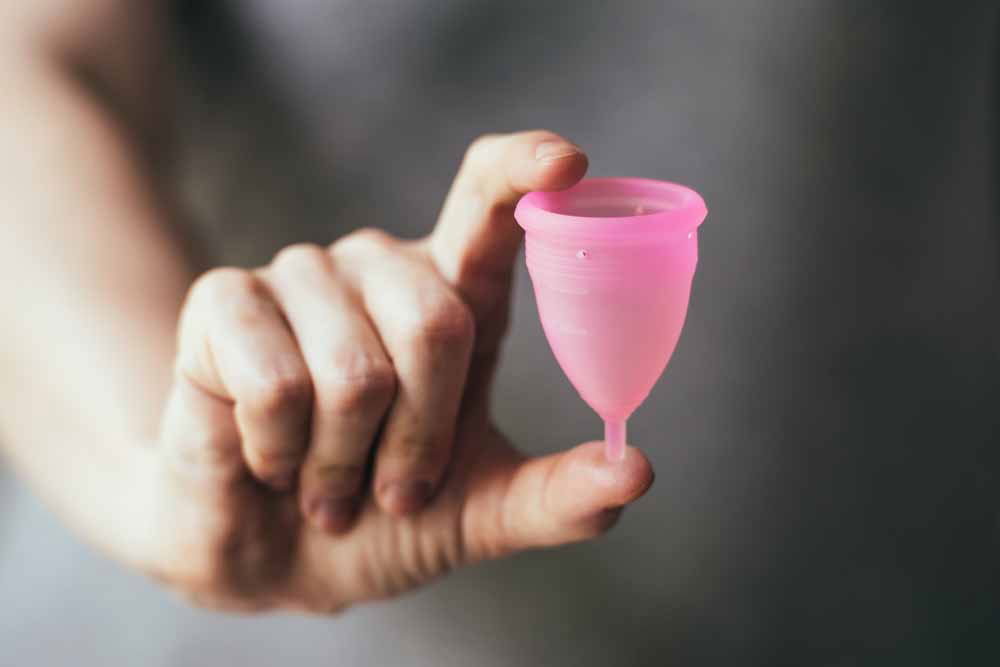
Depending upon the usage, they can last anywhere between four to six years, however experts suggest that you replace them in a year or two. Menstrual cups are usually made of flexible medical grade silicone, latex, or a thermoplastic isomer.
Homegrown brands like Sanfe, Sirona, Pee Safe are working with medical grade silicone for menstrual cups. Vcup is a homegrown brand that is catered for the women on the go. The brand caters to all the essentials that a woman needs while she is on the move, from hand sanitiser pens, coin tissues to soap strips, along with their menstrual cup.
P.S.: It is to be noted, that the composition of menstrual cups has been a debated topic owing to its effects on the environment, as silicon, being a man-made polymer, contains chemicals which are not bio-degradable.
4. Intimate Wipes
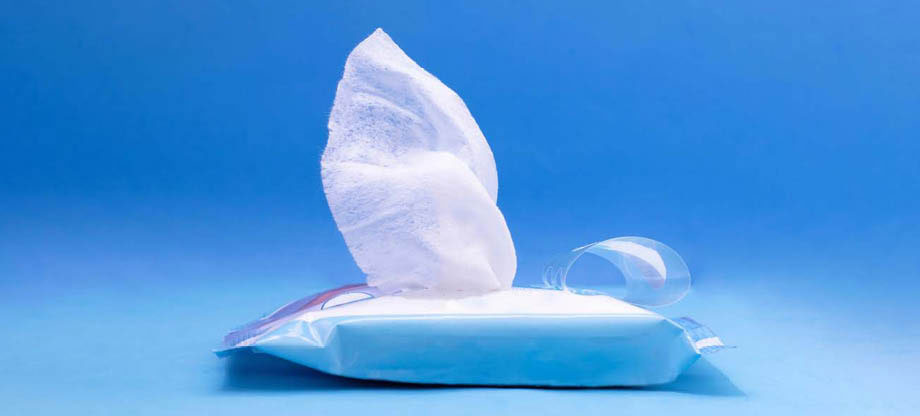
This product is a saviour when you might not have the option of showering immediately or you are on the go. As per experts, when looking out for intimate wipes, check if they are alcohol, paraben, and SLS free, as these are known to cause irritation, especially in sensitive areas such as your vagina.
Brands like Noraa and Plush manufacture intimate wipes which are made of bamboo, contain aloe vera extracts, are chemical, alcohol, paraben and SLS free. Noraa also uses Tea Tree oil, which helps avoid rashes and itchiness in the vaginal area.
5. Period Panties
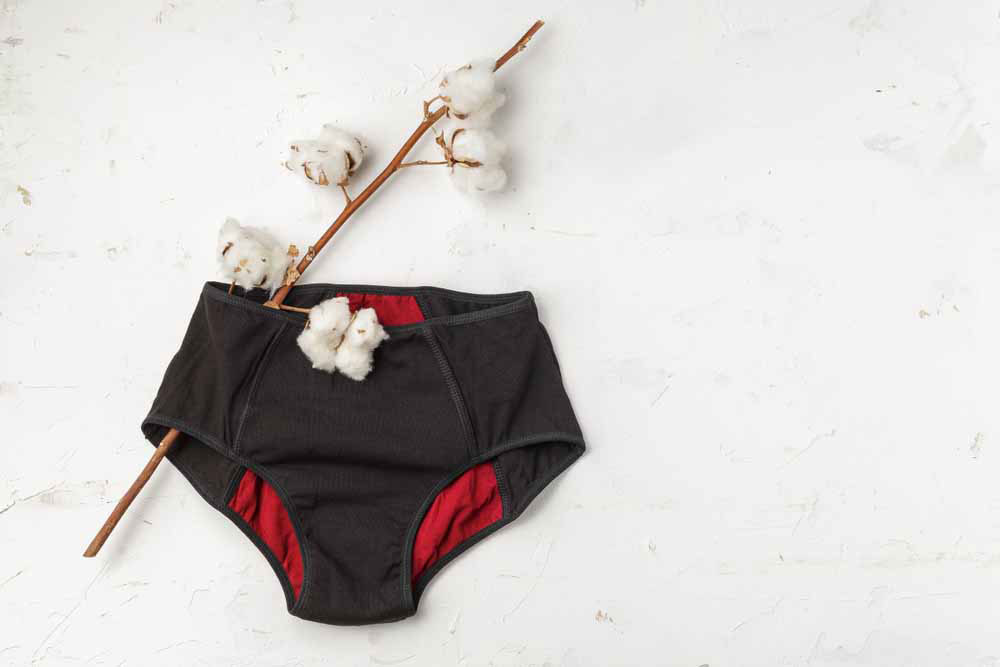
Period panties look and feel just like a normal underwear, the only difference is that they have an extra absorbent layer to prevent menstrual leakage. As more and more individuals move towards reusable products, experts believe that in the long run, period panties may be a sustainable solution, as it needs to be changed once in every three years, as compared to sanitary napkins, tampons, and even menstrual cups, and reduce waste which is generated with the sanitary products mentioned above. However, they are recommended to be used for lighter days as not all of them can absorb heavy flow. That said, it always better to try it out yourself and see what works for you.
Homegrown brands like Adira, which has a US patented technology to help manage the menstrual flow, and Lavos, which has five layers of organic cotton and bamboo in their product; have introduced a range of period panties in the country.